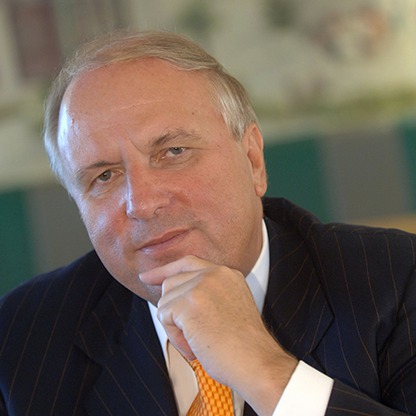
Dieter Schnebel (born 14 March 1930 in Lahr/Baden) is a German composer. From 1976 until his retirement in 1995, Schnebel served as professor of experimental music at the Berlin Hochschule der Künste.
Career
|
|
This section reads like a press release or a news article and/or is entirely based on routine coverage. (February 2017) |
Schnebel has become one of the many important postmodern composers through a unique craft, challenging our definitions of music, its limits, and even its unusual sound capabilities from humans themselves. But before developing into a professional expresser of music as an art form, Schnebel underwent vigorous studies in various fields.
He began with a general private music study with Wilhelm Siebler from 1942 until 1945, when he started piano lessons with Wilhelm Resch, and continued study with him until 1949 at the age of 19. He continued then with music history through 1952, under Eric Doflein (Attinello 2001). Simultaneously he began composition (in 1950) under several musicians, including Ernst Krenek, Theodor W. Adorno, and Pierre Boulez. This led to his attendance at the University of Tübingen, where he studied musicology under Walter Gerstenberg, as well as theology and philosophy, while picking up further piano study as well. In 1955 however, the degree he left with was in fact theology, but with a dissertation about Arnold Schoenberg. Soon after, Camilla Riegger became his wife (in 1956), which led to a son and daughter. He became a minister, and taught theology and religion until 1963, when he added philosophy and psychology to his teaching practices. In 1968 his wife, Camilla, died, after which he underwent a period of psychoanalysis. In 1970 he remarried, to Iris von Kaschnitz, and began teaching religious studies and music in Munich, which he continued until 1976 (Attinello 2001). Then in Berlin, starting in 1970, he became a professor of experimental music and music research, with subsequent visits to the U.S. for other opportunities. Since 1976 he’s been teaching composition on and off in Berlin.
Invited by Walter Fink, he was the sixth composer featured in the annual Komponistenporträt of the Rheingau Musik Festival in 1996.
Source:wikipedia
